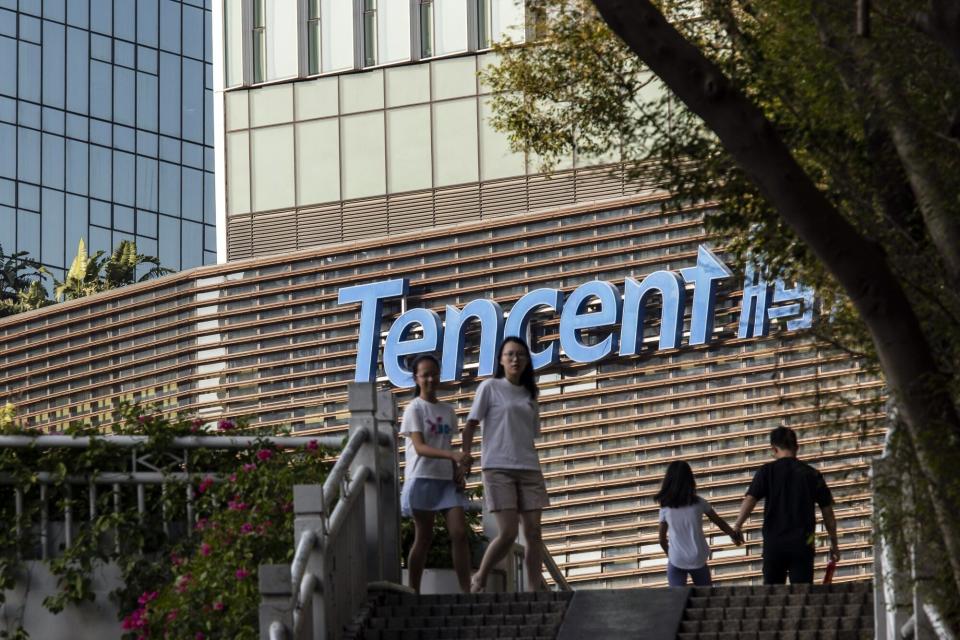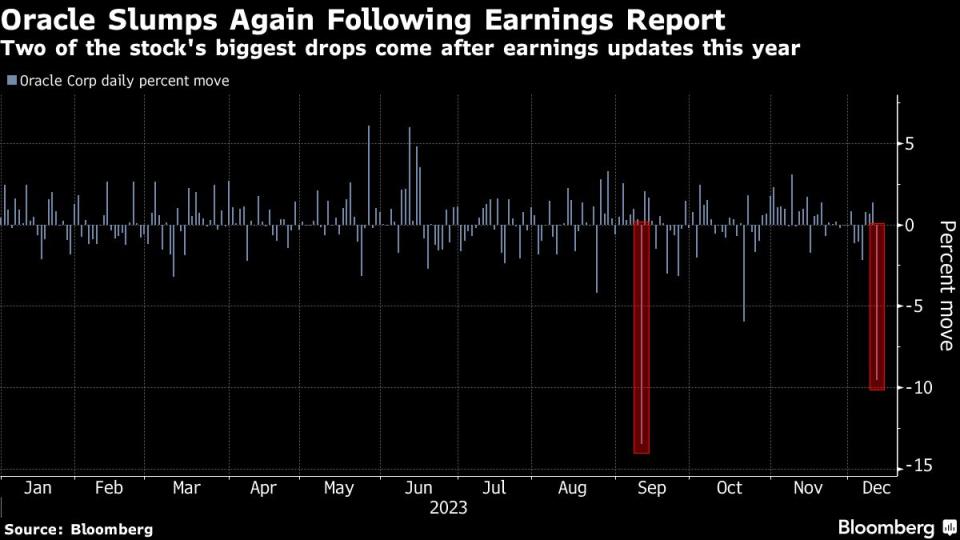Tencent Game Threat Seen Overdone in NetEase’s $8 Billion Selloff
(Bloomberg) -- The $8 billion wipeout in NetEase Inc.’s market value over the past three weeks on concerns of competition from a new Tencent Holdings Ltd. game ignores the company’s strong market position in China.
Most Read from Bloomberg
China’s Real Estate Meltdown Is Battering Middle Class Wealth
Dimon’s Heir at JPMorgan Still Hazy as ‘Five More Years’ Tick By
To Trade the Fed’s Pivot, Wall Street Turns to Short-Dated Debt
China’s iPhone Ban Accelerates Across Government and State Firms
Bulls believe that NetEase will rebound, thanks to the massive popularity of its Eggy Party, as well as a promising pipeline of new titles. They also note that the company is a “pure play” in games, which are more recession-proof than other consumer segments where Tencent is exposed.
Hong Kong-listed shares of NetEase are down 10% from a November high on the perceived threat from Tencent’s Dream Star, which is due to be released Friday. NetEase is still up 45% this year, far outpacing Tencent as well as Chinese technology and global game peers.
“We believe NetEase is macro-defensive with its solid longevity legacy games and track record of new games,” Julia Pan, an analyst at UOB Kay Hian Hong Kong Ltd., wrote in a note. Moreover, party games are the fastest-growing genre, and Eggy Party has “dominated” the segment, Pan said.
Analysts have unanimous buy ratings on NetEase’s Hong Kong-listed shares, with an average price target implying a gain of 30% over the next year, according to data compiled by Bloomberg. The stock’s put-to-call ratio based on total open interest has been falling this month, suggesting that options traders are also becoming more bullish on the stock.
‘Party Royale’
Released in May 2022, Eggy Party remains among the top app downloads in China. Its so-called “party royale” format is popular with more casual users, especially young women. Players of the game control egg-like characters that compete in a variety of minigames and obstacle courses.
Tencent’s heavy investment in Dream Star spawned concern of a repeat of its 2018 success with “battle royale” game Peacekeeper Elite, which quickly stole players away from NetEase’s Knives Out. Experts say the situation is different for Eggy Party, which has already achieved critical mass with more than 100 million monthly active users.
“Party games as a genre are gaining traction in China, and the arrival of Dream Star should help expand the total addressable market rather than simply eating into Eggy Party’s user base,” said Xiaofeng Zeng, vice president at Niko Partners, a gaming consultancy company.
‘Macro-Defensive’
Economic conditions may also favor NetEase, which got 80% of its revenue from games in the latest quarter versus 30% at Tencent. With spending on games seen as resilient to downturns, NetEase may be less sensitive to China’s economic headwinds than large internet peers that rely on e-commerce or advertising.
NetEase also has more games on the way to cushion any loss in popularity for Eggy Party, which is estimated to have contributed a mid-to-high single-digit percentage of the company’s third-quarter sales. Upcoming releases include Condor Heroes and Where Winds Meet.
“We see another buying opportunity emerging, mainly due to the overblown concerns about Eggy Party competition,” Morgan Stanley analysts including Alex Poon wrote in a note. “We expect its share price will regain momentum as NetEase announces the launch dates for multiple strong game titles.”
Tech Chart of the Day
Oracle Corp. shares fell as much as 11% on Tuesday after the software company reported adjusted second-quarter revenue that was weaker than expected. This would be the biggest single-day drop since September, when Oracle flagged slowing cloud sales growth.
Top Tech Stories
Google’s legal defeat at the hands of Fortnite maker Epic Games Inc. threatens to roil an app store duopoly with Apple Inc. that generates close to $200 billion a year and dictates how billions of consumers use mobile devices.
Commerce Secretary Gina Raimondo said the US is looking into the specifics of three new artificial intelligence accelerators that Nvidia Corp. is developing for China, after vowing earlier this month to restrict any new chips that give the Asian country AI capabilities.
Taiwan’s financial system undergirds a $760 billion high-tech economy, but its vulnerability to advanced hacks has raised fears of a worst-case scenario: a full-blown cyberattack from China that sends its currency and markets into a tailspin.
Oracle Corp. reported slowing quarterly sales growth in its cloud computing business, fueling investor fears that the software maker’s expansion efforts have yet to gain ground in the competitive market.
Sam Altman is back on the conference circuit and touting AI’s benefits to humanity, days after regaining the lead at the world’s best-known artificial intelligence startup.
Cathie Wood made her first purchase of Microsoft Corp. shares in about nine months, adding to her bets on US megacap technology firms tied to artificial intelligence.
Elon Musk must face a Twitter investor lawsuit that accuses him of fueling uncertainty about his proposed buyout in an effort to drive down the social media platform’s stock price, a California federal judge ruled.
Earnings Due Tuesday
No major earnings expected
--With assistance from Zheping Huang and Subrat Patnaik.
(Updates stock move in the Tech Chart of the Day section.)
Most Read from Bloomberg Businessweek
The Biggest Problem With Lab-Grown Chicken Is Growing the Chicken
Jon Corzine, Steve Aoki and the Art of the Second Act on The Businessweek Show
©2023 Bloomberg L.P.



